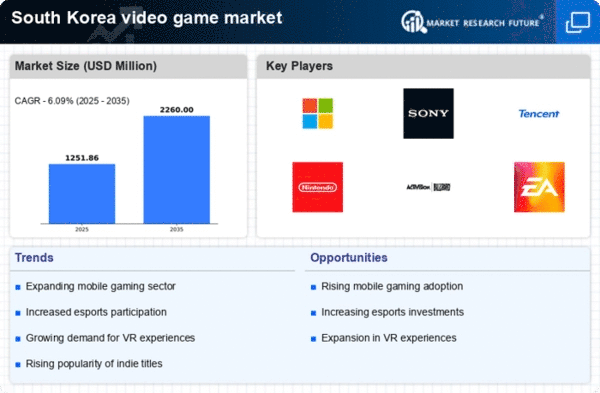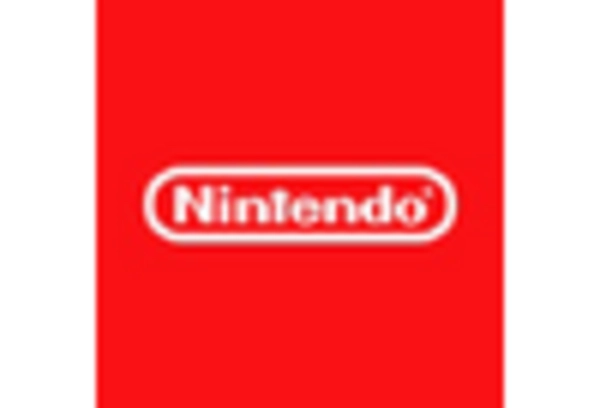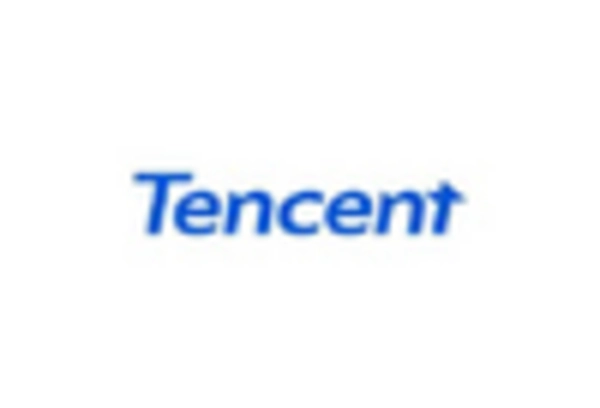Diverse Gaming Platforms
The video game market in South Korea is characterized by a wide array of gaming platforms, including consoles, PCs, and mobile devices. This diversity allows developers to target various demographics and preferences, thereby expanding their reach. In 2025, mobile gaming accounts for approximately 60% of the total gaming revenue in the country, indicating a strong preference for portable gaming experiences. Additionally, the increasing popularity of PC and console gaming, driven by high-quality graphics and immersive gameplay, suggests that the video game market is evolving to cater to a broader audience. This multi-platform approach not only enhances user engagement but also fosters competition among developers, ultimately benefiting consumers.
Innovative Game Development
The video game market in South Korea is marked by a strong emphasis on innovation and creativity in game development. Local developers are known for producing unique and engaging content that resonates with players. The rise of indie game studios has further diversified the market, introducing fresh ideas and gameplay mechanics. In 2025, the revenue generated by indie games is projected to reach $500 million, highlighting their growing influence within the video game market. This focus on innovation not only attracts players but also encourages collaboration between developers and technology companies, fostering an environment conducive to growth and advancement in the sector.
Cultural Acceptance of Gaming
In South Korea, gaming is widely accepted as a mainstream form of entertainment, which significantly impacts the video game market. The cultural perception of gaming has shifted, with many viewing it as a legitimate hobby and even a potential career path. This acceptance is reflected in the increasing number of gaming events and tournaments, which attract large audiences and sponsorships. Moreover, the South Korean government has recognized the economic potential of the gaming industry, providing support for local developers and promoting esports. As a result, the video game market is likely to continue thriving, with a growing number of players and increased investment in game development.
Increasing Internet Penetration
The video game market in South Korea benefits from the country's high internet penetration rate, which stands at approximately 98%. This extensive connectivity facilitates seamless online gaming experiences, allowing players to engage in multiplayer games and access digital content effortlessly. The proliferation of high-speed internet has also led to the rise of cloud gaming services, which are becoming increasingly popular among consumers. As a result, the video game market is likely to see continued growth, with more players participating in online gaming. Furthermore, the availability of affordable data plans encourages gamers to spend more time online, thereby enhancing the overall gaming experience and driving revenue growth in the sector.
Investment in Esports Infrastructure
The video game market in South Korea is experiencing a surge in investment aimed at enhancing esports infrastructure. Major cities are developing state-of-the-art arenas and facilities to host esports events, which are becoming increasingly popular among both players and spectators. In 2025, the esports market is expected to generate over $1 billion in revenue, reflecting the growing interest in competitive gaming. This investment not only boosts the visibility of the video game market but also creates opportunities for sponsorships and partnerships. As esports continue to gain traction, the overall gaming ecosystem is likely to benefit, leading to increased participation and revenue generation.
















